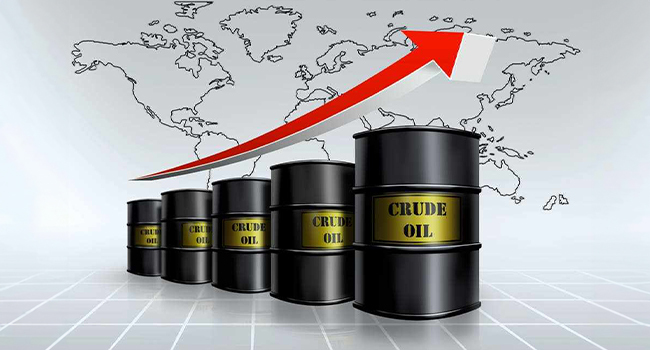Oil, Gold Prices Surge Amid Ongoing Israel-Iran Conflict; Inflation Fears Rise

Oil prices continued to climb on Monday as Israel and Iran exchanged missile strikes for a fourth straight day, fueling fears of a prolonged conflict that could disrupt global energy supplies and reignite inflation. Gold prices also edged closer to record highs as investors sought safe-haven assets.
Despite the rising tensions, equity market losses were modest, with investors cautiously hopeful that the conflict would not spread further across the Middle East. Attention also turned to key central bank meetings this week, particularly those of the US Federal Reserve and the Bank of Japan, as well as trade talks aimed at preventing a reintroduction of steep tariffs under former President Donald Trump.
Oil prices had spiked as much as 13% following Israel’s surprise strikes on Iranian military and nuclear facilities, which killed several high-ranking commanders and scientists. The surge raised concerns about a new wave of global inflation, potentially undermining efforts by central banks to stabilize prices and support slowing economies.
Read Also:
APC’s Rising Star: The Woman Ganduje Trusted with the Future
“The knock-on impact of higher energy prices is that they will slow growth and cause headline inflation to rise,” said Tony Sycamore, a market analyst at IG. He warned that if elevated energy prices persist, they could push up core inflation as businesses pass on higher transport and production costs to consumers.
Such a scenario, Sycamore noted, would limit central banks’ ability to cut interest rates, especially as they also contend with potential economic damage from renewed U.S. tariffs. Both Brent and WTI crude were up over 1% in early Asian trading.
As geopolitical and economic uncertainties intensify, global markets are bracing for a volatile week.
AFP



